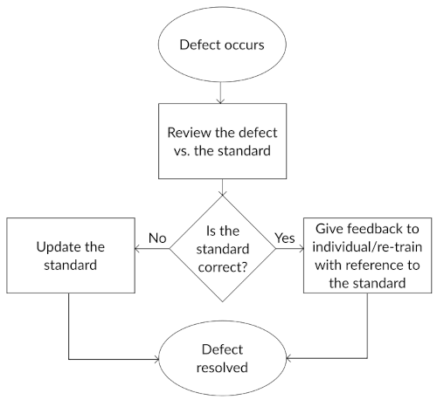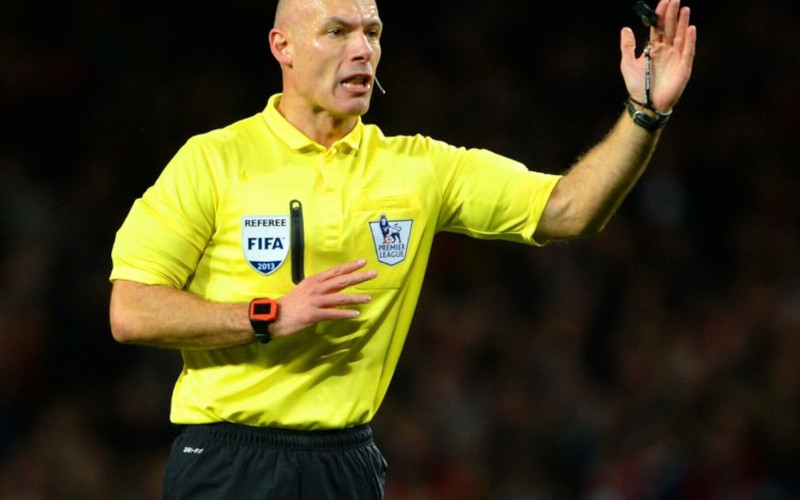Premier League VAR: how can Howard Webb fix the problems?
Premier League VAR was again the major talking point after a weekend featuring a number of high-profile errors by match officials using video technology. The VAR did not draw the lines when checking for offside on Brentford’s equaliser at the Emirates. Meanwhile, a similar error disallowed a Brighton goal against Crystal Palace.
What is VAR?
VAR is an acronym for Video Assistant Referee. This extra official uses video replay to check for and correct errors by the other officials. The aim is to use technology to assist referees and ensure greater accuracy of decisions.
Other sports and leagues including English rugby have used video review for many years. However, it was a controversial introduction to English football in 2019. There is a lot of vocal opposition to VAR from traditionalist fans and pundits. Errors in its use such as those this weekend do not exactly help the case.
Criticisms
Critics of VAR point out a number of issues. One of the most significant, as we anticipated here at BFTGT back in 2018, is the significant delay to games, which poses difficulty both for players and for fans. When the decisions are still not correct even after a big delay, this becomes an even bigger issue.
Football is a quick-flowing sport. Fans enjoy this flow and the relative lack of stoppages when compared to other sports. Introducing VAR challenges this strength of the game.
In most English grounds, there is no system used to tell fans in the stadium about an ongoing VAR check. Fans sit perplexed and frustrated, waiting to be told what is even being reviewed, let alone the final decision.
Wider Problems
Although VAR is new, the discussion about refereeing in English football is not. Howard Webb, the head of Premier League match officials, described the issues this weekend as “human errors”. Therefore VAR hasn’t really moved the needle in terms of the conversation about referees in English football. The technology is different but the discussion is the same as it has been for 20, 30, even 50 years.
Refereeing is a popular topic for football coverage in all types of media. It makes an easy, contentious subject to generate anger and tap into fans’ tribalism. Radio phone-ins have always relied on this to generate engagement. Other media is increasingly doing the same via social media channels.
Studies have found that people are more likely to engage on news stories that generate negative emotion than positive. There is some excellent football punditry around English football from tactical and technical perspectives. However, a lot of pundits prefer to engage with the frustration and anger of the fan experience. Focusing on refereeing decisions is one way to achieve this.
😳 “This is the biggest, best and richest league in the world and you are making basic errors?!”
👀 “VAR is making the Premier League a LAUGHING STOCK!”
@alex_crook doesn’t hold back when discussing VAR’s decisions in the #PL!
— talkSPORT (@talkSPORT) February 12, 2023
Fixing the Problems
John Brooks was the VAR official when two of the recent errors were made. Webb responded by replacing Brooks for the Monday and Wednesday night games this week. However, Webb is not likely to get far by blaming issues on “human error” and simply cycling through officials.
This approach is not new to refereeing in English football. We often see referees demoted to the Championship for a few matches. However, the referee returns to the top flight a few weeks later and carries on as usual. If Webb really wants to solve the problem, he needs to take a different approach.
Learning from Business
We’ve all heard an enraged football fan say to a presenter on a radio phone-in that “if I did my job as badly as that referee, I’d be sacked”. But that isn’t really true of effective organisations in the world of business. Rather, effective organisations instead have processes in place to systemically learn from defects that arise. This is the sort of process that Howard Webb needs to install.
I have worked for over a decade in supply chain and operations management. The most effective organisations that I have worked in were the ones which created a learning organisation. These organisations had a focus on rigorously applying and updating shared standards and developing collective mastery.
We began each working day with a team meeting. In that meeting we reviewed defects that occurred the previous day, applying this algorithm to each of them:

This process leads the organisation to create highly precise standard work processes and reference documents. These are highly effective in allowing workers to navigate the tasks that make up today’s highly-complicated knowledge jobs. I believe they would be just as effective in the world of Premier League match officiating.
Human Error, or Unclear Standard?
Over 80% of defects that occur run through the left hand side of the flowchart. Most individuals try to do a good job. If somebody does make a mistake, it is usually because the work process that they were supposed to follow was not clearly defined.
Consider the VAR not disallowing Brentford’s equaliser at Arsenal because he did not draw the offside lines. Was this really a mistake? I bet there is not a clear work process for VAR which defines that for an offside situation, the official must always draw the lines. Commentators were quick to say “that’s obvious”. Webb, however, needs to ignore that noise. He must write a standard work process for an offside VAR review and train his team with reference to it.
In FMCG supply chain we worked every day and so we ran our team meeting to review defects daily. Premier League referees work on a weekly cycle, so Webb should have a meeting with his team once per week. Webb should define an appropriate scope for which defects are discussed. I would suggest every VAR decision should be reviewed, plus any known mistakes which were not reviewed during the games. Reviewing the decisions together is essential. This is is how you generate the mastery and learn together as a team instead of as individuals.
As Peter Senge describes in The Fifth Discipline, the aim is to create a safe space with open dialogue, a lack of defensive measures by team members, and spirit of collective vision, constant learning and group mastery. Presently from the outside we observe Premier League officials being very far from this culture. Webb should prioritise this cultural change.
Expected Benefits
Implementing a learning organisation following this rigorous and scientific approach would transform the conversation about refereeing mistakes. No longer would Webb demote a referee for a week or replace a VAR official, telling the media “it was a human error”. Instead he would systemise the lesson from the mistake. He could then confidently tell the media that he had updated work processes to ensure the mistake does not recur.
Creating a highly professional organisation amongst the referees and changing the media conversation would bring major benefits. Not only would it be better work environment for Webb and his team, but this greater sense of professionalism would filter down to grass-roots where there is currently an epidemic of abuse no doubt encouraged by the media discussion of top-level football being so dominated by discussions of officiating mistakes.
Through this process, Webb’s team of referees would develop a much greater shared understanding of how to handle each incident. We would see referees begin to treat incidents more consistently. There would be no need to send referees to the pitchside monitor, slowing the game down even more. Instead, if the match referee and the VAR are working to the same standards for every incident, then the match referee can fully trust the VAR’s call.
A Crossroads
Howard Webb is at a crossroads early in his job as England’s refereeing chief. Will he take up the challenge of creating a learning organisation? Or will he carry on with business as usual in English football refereeing?
If he goes the latter route then, VAR or not, it’ll be as it has always been. We’ll all still spend too much time talking about referees. That seems a shame when there are so many brilliant players and coaches in this country we could be discussing instead.
